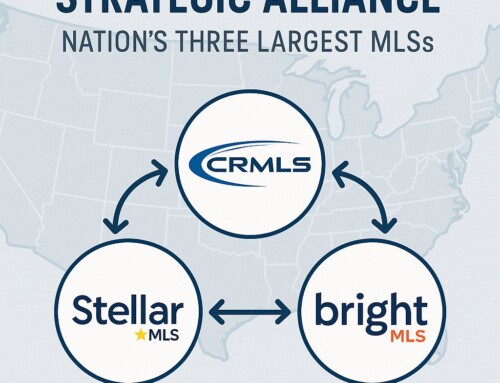The real estate industry has never been a fan of consumer websites that allow anyone to post a rental or property listings without any type of verification. The driver behind this policy has been a recognition by MLSs that these websites will often present unverified property listings that are used by nefarious people to scam unsuspecting consumers. A Google Search for “Craigslist scams” yields 30 Million search results. Now the scams are spreading to Zillow, another ad-sponsored consumer website that blends verified real estate listings with unverified listings that frequently result in consumer scams.
On July 4th in Atlanta, GA, a Fox 5 affiliate covered a story about the Hall County Sheriff’s Department warning potential home buyers and renters about scammers using actual listings and putting them under fake names on Zillow.

Zillow ended data feed agreements with Listhub and with brokers a few years ago, now relying mostly on data feeds that come from Multiple Listing Services. These data feeds are typically broker opt-in, meaning that a broker’s listing does not get published on Zillow without the broker authorization. The interesting twist that may find MLSs complicit with Zillow scams is that the MLS is the entity that manages the data license agreement with Zillow. That agreement details the legal arrangement between Zillow and the MLS with the broker’s listing content held in the balance.
Here is the legal question:
If data from a broker is submitted to the MLS, then licensed by the MLS to Zillow with the broker’s authorization, who is responsible for the behavior of nefarious users of Zillow who repurpose a broker’s listing for a scam? I do not know the answer, but consumers are clearly being put at risk on Zillow Group websites according to the news from Atlanta. Or, more directly – if an MLS knows that this type of scam is happening on Zillow’s websites, are they complicit in supporting the illegal activity when they knowingly continue to operate with the awareness that consumers are being scammed using data provided from the MLS? What a mess.
Zillow believes that allowing For Sale By Owner listings on their websites is a benefit to homebuyers because they have transparency into the market for properties that are not listed by a licensed broker. An unfortunate side effect of this policy allows scammers to use Zillow.com for illegal activity. According to the Atlanta news story, many of the scams include consumers who have lost deposit money, along with scams that involve consumers filling out forms with their personal information on phony credit applications. Zillow has launched a page on their website that tries to advise consumers about known scams on their website –
In my opinion, Zillow would develop more trust with consumers and their real estate industry partners if they did away with FSBO listings. Surely providing a safe search environment is a more compelling benefit than the small number of valid listings submitted to the site from property owners.
To stay on top of the most important issues facing real estate today, subscribe to the WAV Group newsletter HERE.





Zillow is not held to ethical standards as Realtors are. Zillow has no interest in protecting the public or
buyers or sellers. Zillows only goal is to make money by selling advertising to agents. Zillow does not keep listings up to date and at best, Zillow is just a big nuisance. At worst, they put sellers at risk by opening their properties up to schemes like this and not publishing accurate value information about the properties.
I advise clients, customers, friends & family alike NOT to use ZILLOW!
The main reason “INACCURACY”.
Realtors are trained, licensed and follow a CODE OF ETHICS for a reason (to be accountable)!!
@Anita, Ditto on your entire comment. Zillow is a lead-capture (site) only … I have found first hand erroneous information. We as realtors must hold MLS accountable, as the intended migration has NOT worked for anyone.
Hi, its pleasant post on the topic of media print, we all
be familiar with media is a impressive source of information.
I reported to Zillow multiple complaints about a fraudulent listing. They initially took it off their website and now it’s back on. I have a townhouse in Parkland, Florida that I recently renovated and had it on the market to rent for $2,450. Someone copied all the pictures and even the description of the property. The only difference is she changed the number of the house by one digit. What really upsets me is someone will fall victim because they are interested in my property, which is no longer on the market. That really doesn’t sit well with me. It also upsets me that Zillow won’t do anything, yet Hotpads removed the listing immediately and has kept it off. I used to think Zillow was a legitimate website. Disgusted with Zillow.